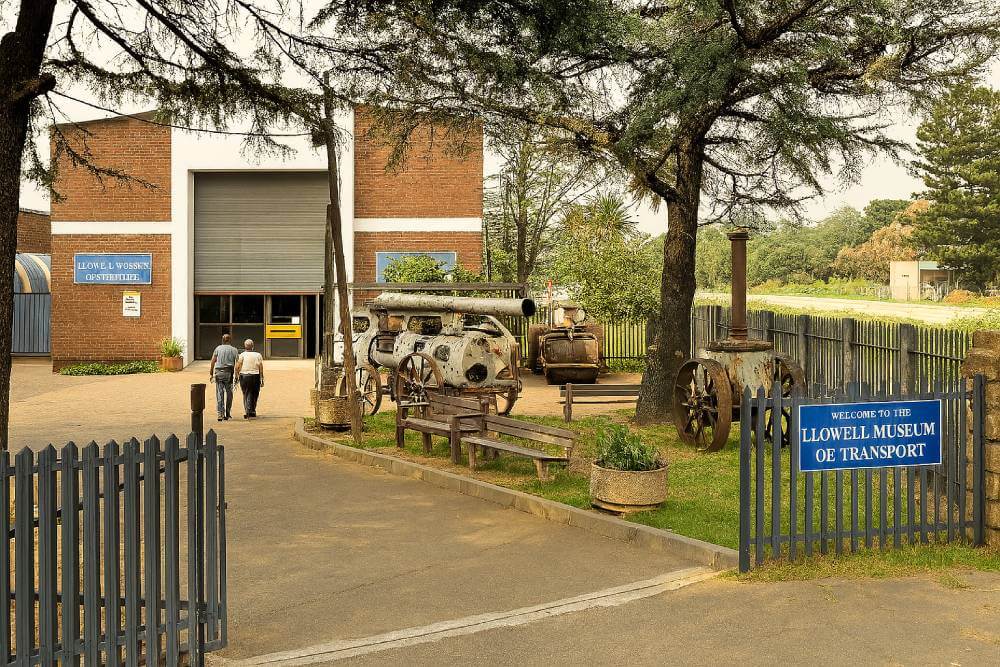Zoom Back in Time
Establishing in 1964 by the late Jimmie Hall and the City of Johannesburg, the James Hall Transport Museum is the biggest and most complete museum of South African land transport. The museum is designed to take visitors on a tour of the various types of transport that were in use by the vast majority at various stages of the country’s history. It is also a testament to the ingenuity of man and the constant need to improve and better existing designs. The museum is open between 09:00 and 17:00 from Tuesday to Sunday and entrance is free.
The James Hall Transport Museum is set out in such as way that it more or less starts with the oldest vehicles and progresses to more modern times. The first section is devoted to the animal drawn vehicles and features a two and four-seater cape cart. These two-wheeled carts are uniquely South African and were designed to cope with the harsh African environment. The exhibit also features a spider, a governess cart, a Victorian and a scotch cart. But the exhibit does not stop here and as you move into the South Hall on the ground floor you will be confronted with animal-drawn vehicles of all shapes and sizes. The vehicles here are somewhat more robust than in the first display area and features a replica of the Zeederberg coach, the Voortrekker wagon and a variety of ox-wagons.
After this you can move on into the courtyard where the method of impulsion moves from animals to steam. The impressive collection of rollers, wagons and jib cranes as well as a tractor and a bus are world-renowned with many still being in perfect working order. The courtyard also has a few electric trolley buses which were once used in Johannesburg, Durban, Cape Town and Pretoria as well as diesel buses which come from London, Johannesburg and Cape Town. The East Hall is dedicated to the development of bicycles and motorcycles through the ages and starts with the velocipede (aka boneshaker) of 1869. This heavy wooden machine had no suspension and would jar its passenger terribly as they made their way along. The exhibit also includes penny-farthings, a tandem and tricycles and an entire section devoted to early fire-fighting equipment.
From here the North Hall finally introduces you to the early motor-car and includes various modes of Edwardian Transport. The hall walks you through the many developments made on the various models of cars in the display and culminates in a display on the development of tires which made many improvements possible. The Porch is dedicated to steam locomotives, agricultural equipment and municipal vehicles while the West Hall features a variety of South African trams – from horse drawn trams to electric trams – most of which were used in Johannesburg at some stage of the city’s history. The Tuckshop sells snacks and cool drinks which are usually best enjoyed in the courtyard. The gift shop presents the opportunity to pick up a few mementos and also contributes to the continued running of the museum. So visit the James Hall Transport Museum of South Africa and enjoy this rather different walk through time.











